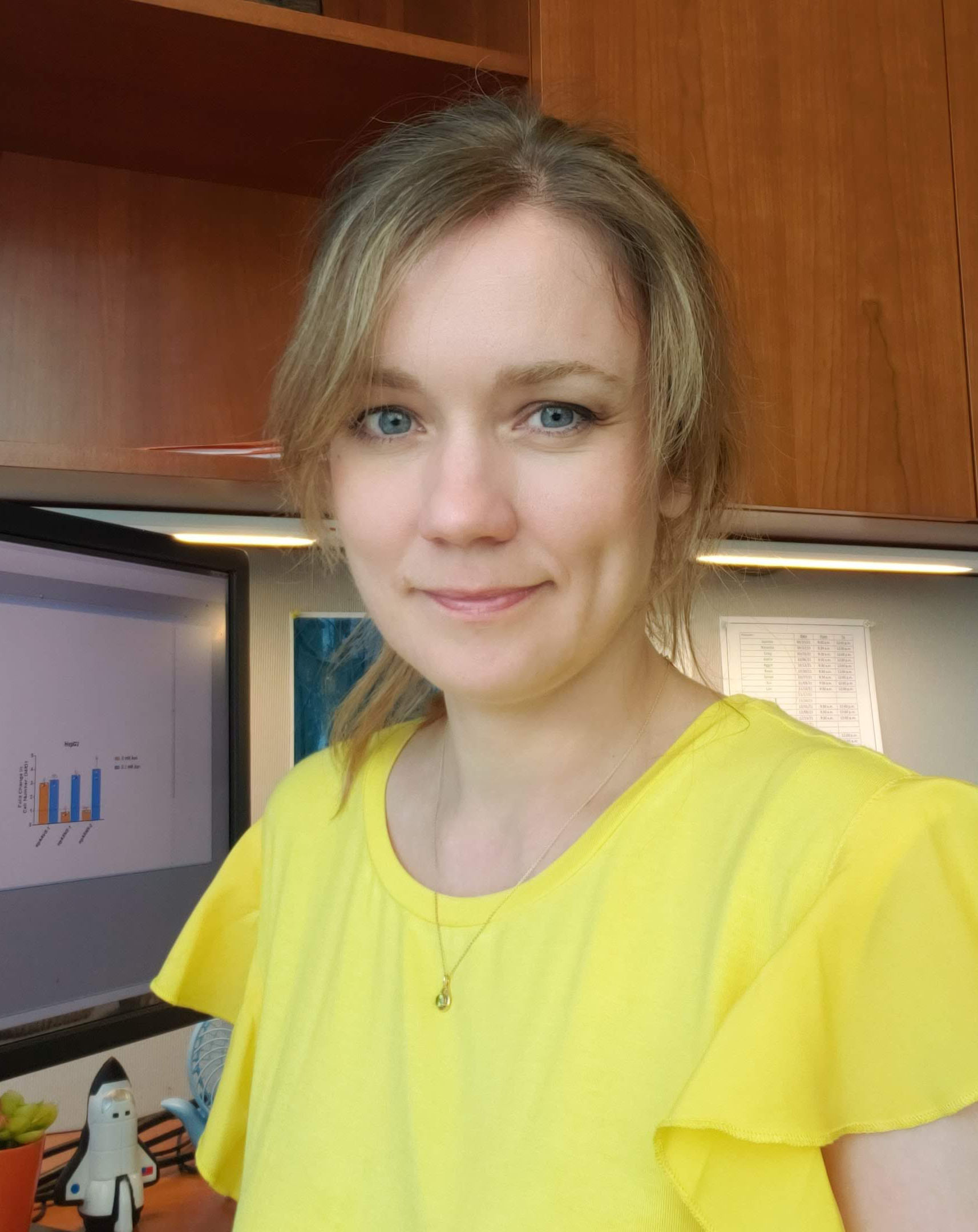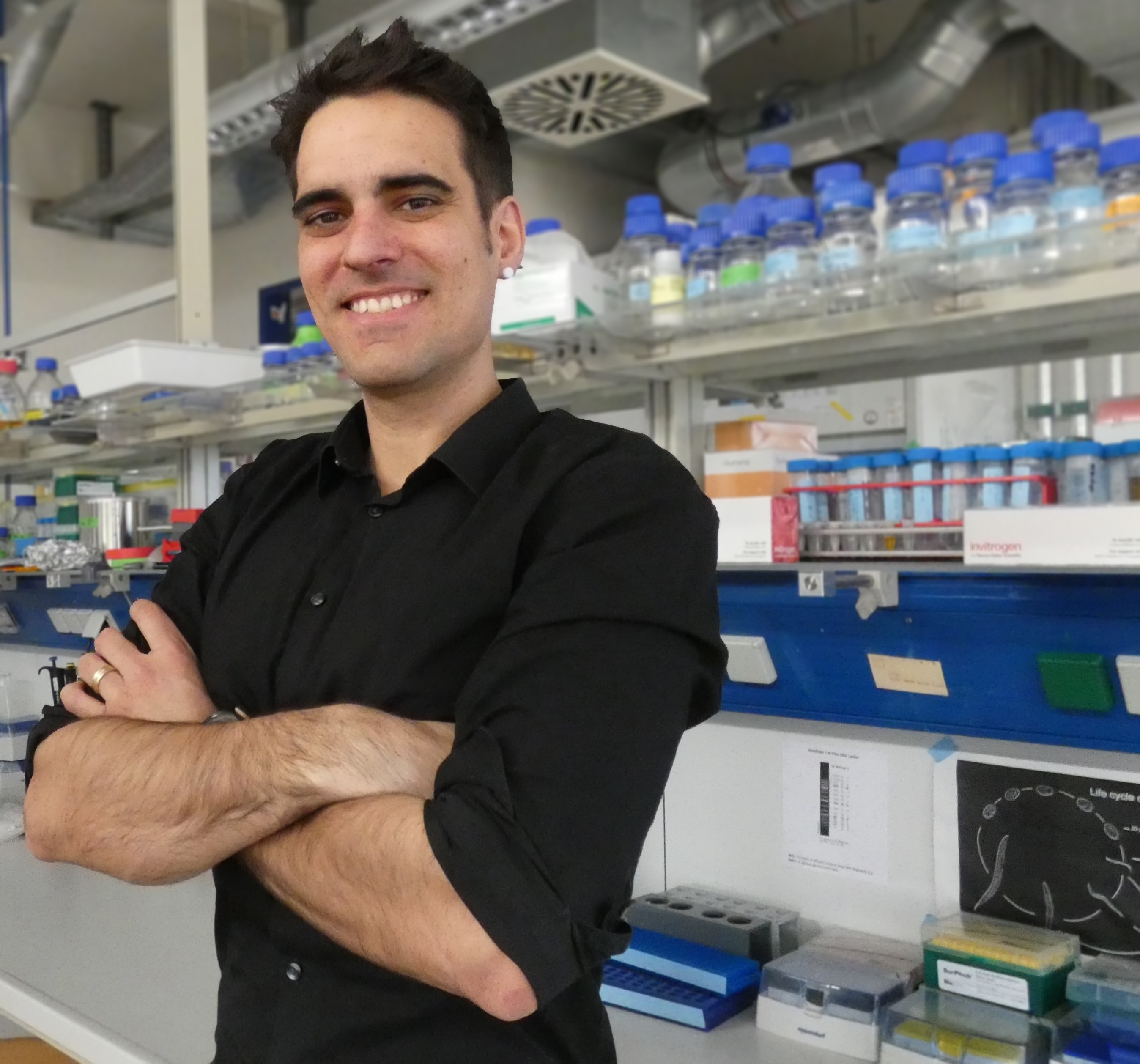The Metabolism Research community looks at the changes in cellular metabolism that drive a number of chronic diseases including diabetes, heart disease, cancer, and more. The University of Utah has more than 65 faculty members researching innovative approaches to understand fundamental metabolism and to improve metabolic health.
Areas of study of these faculty include mitochondrial metabolism, lipotoxic mechanisms, cardiac and endothelial cell metabolism, and genetics of metabolic health. These research labs are part of the University of Utah’s Diabetes and Metabolism Research Center (UDMRC), an interdisciplinary center that encompasses over 100 researchers across 24 departments and 8 colleges and receives $71M in funding (direct costs per year) from peer reviewed research grants.
Opportunities for trainees in Metabolism include: weekly “Metabolism Research in Progress” meetings, weekly “Seminars in Metabolism” lecture series, monthly student-led “Metabolism Interest Group” meetings, annual UDMRC retreat, and two NIH-funded metabolism-focused T32 training grants.
University of Utah Health Calendar
- Seminars in Metabolism (SIM)
- Metabolism Research in Progress session (RIPS)
- Diabetes and Metabolism Research Symposium
- “Rising Stars in Metabolism” Research Symposia
- Student-led Metabolism Interest Group
SIM is a longstanding, interdepartmental, weekly lecture series that is the primary gathering point for researchers with a fundamental interest in the metabolic derangements that underlie chronic diseases such as diabetes, cancer, and cardiovascular disease. The series features presentations from renowned external speakers intermixed with talks from internal laboratory heads and trainees.
Weekly Metabolism RIPs provide opportunities for researchers to obtain feedback on ongoing, unvarnished research projects related to metabolic regulation. The meeting typically includes ~50 participants spread across six departments from the School of Medicine and the College of Health. The spirited discussions enable scientists of all levels to receive critical feedback about projects and grant applications at early stages of development.
The UDMRC hosts an annual research symposium that showcases discoveries by UofU investigators and fosters networking. These events are held in the Fall of each year and attract ~150+ diabetes and metabolism researchers from across the UofU. The event typically includes at least one external keynote address from a renowned leader in metabolism, short talks from faculty and trainees, and a poster session.
This two-day event features senior postdoctoral fellows from outstanding research labs around the country, offering these emerging scientists an opportunity to share their high-impact discoveries.
This trainee-only monthly meeting includes research and journal club presentations, and is a great way for students to make connections to drive their research forward.
T32 Opportunities
-
Interdisciplinary Training in Metabolism
Together, these training grants support 6 graduate and 4 postdoctoral trainees.
Metabolism focused Core Facilities
University of Utah researchers have access to numerous state of the art core facilities, resources and support through the Health Sciences Center, Huntsman Cancer Institute, and the University. Cores and resources that are highly utilized by Metabolism Research Emphasis Area members are:
Students

"Metabolism research encompasses several different fields and I like how our labs cover many of these bases. For example, you can look at metabolism from a human physiology standpoint and we have several labs that study this. Metabolism can also be studied at the cellular level and there are labs such as the one I'm in that study this. No matter what aspect of metabolism you are into there is likely a lab here that fits your interests. The labs that we have at the U are also well funded and there are many grants that are available for you to apply to as well."
Kevin Chui, Adam Hughes's Lab

“The University of Utah studies metabolism from many different angles. Interdepartmental seminars related to metabolism expose students to the variety of methods researchers use to answer unique questions elicited by their studies. Thus, there are many opportunities for education and collaboration that help us comprehensively test our hypotheses and further pursue our research inquiries.”
Alek Peterlin, Katsu Funai's Lab

“What I like about metabolism research is its complexity and wide applicability. The things we do every day are happening due to the many biochemical pathways that are being activated to give us energy and send signals. When those pathways are disrupted or fail, there are severe repercussions that cannot be cured with a single injection or daily pill. Interventions of metabolism dysfunction must consider someone holistically from their diet, lifestyle, and genetic factors. A lot of diseases we treat such as heart failure, diabetes, or general obesity are due to comorbidities. Just as the problems are complex, so are the solutions and the University of Utah is a good place to study this because of the highly collaborative environment, top-notch core facility, and access to biobanks to explore the heritable genes and predisposition to metabolic dysfunction. The resources and community culture are what makes Utah shine.”
Faith Bowman, Ammon Schlegel's Lab

"The UofU is a leader in metabolism research. This institution has the appropriate equipment, core services, and collaborative and supportive environment. We as trainees got a quality mentorship from world-renowned scientists that help us to succeed in our scientific careers inside and outside academia."
Jesse Velasco, Greg Ducker’s Lab
The University of Utah General Catalog
BIO C 6600 – Regulation of Metabolism
This half-semester course will begin with a review of carbohydrate and lipid metabolic pathways, with an emphasis on an integrated understanding the pathways and what is known about their regulation. The course will progress to an in-depth analysis of current research in specific areas of nutritional sensing and metabolic regulation.
H GEN 7380 - Biochemical Genetics
This course will educate physicians and graduate students on the fundamentals of biochemical genetics. Includes inborn errors of metabolism and several common disorders, such as diabetes and hypertension, which have biochemical bases correctable by diet or other medical intervention. Provides overview of biochemical pathways, practical experience on how the biochemical pathways can be studied in vivo and in vitro, the molecular bases of common metabolic problems, the mechanism of inheritance including recurrence risk, and how to rationally treat metabolic blocks.
NUIP 6440 - Metabolism of Macronutrients
Metabolism of carbohydrates, fats, proteins, and other related topics with emphasis on the regulation of energy metabolism and the inter-relationships of the biochemistry and nutrition of macronutrients and chronic disease
NUIP 6450 - Nutrition Biochemistry
This course is designed to give students a thorough working knowledge of cellular biochemistry and genetics as it pertains to human physiology, nutrition and metabolism. Background material will be supplemented and reinforced through study of relevant systems and disease states. The material covered includes knowledge competencies required by the Accreditation Council on Education for Nutrition and Dietetics.
NUIP 6460 - Metabolism of Micronutrients
Biochemical and physiological role of vitamins, minerals, and trace elements in maintenance of homeostasis in humans. Nutrient deficiency and toxicity syndrome, and application of inborn errors of metabolism are discussed as case studies.
Bioscience Faculty


Autoimmunity, Central Tolerance, Thymic Development, Tolerance to Microbiota, Chimeric Antigen Receptors (CARs)
Cell Signaling, Genetics, Development, Inter-organ Communication, Drosophila, CRISPR, Plasma Proteomics

Physiology, Metabolism, Nutrition, Time-Restricted Feeding (TRF), Circadian clock, Aging

Mitochondria, Heart Failure, ion Channels, Calcium Channels, Mitochondrial Diseases, Voltage-Clamp Electrophysiology, Metabolism, Calcium Imaging, Mitochondrial Calcium Uniporter

Chromatin and Histone Modifications, Epigenetics and Metabolism, Protein Chemistry, Metabolite Sensors

Cancer Metabolism, Physiology, Liver Cancer, Mass Spectrometry, Chemical Biology, CRISPR Screens

Chromatin, Chromatin Remodeling Epigenetics, Proteomics, Heart Failure, Heart Disease, Cardiovascular Disease, Mass Spectrometry


Biomaterials and Drug Delivery, Materials in Medicine, Nanomaterials Toxicity, Diagnostics, Cell Therapy


Cardiomyocyte, Transverse Tubules, Microdomain, Heart Failure, Calcium Signaling, Ion Channels, Extracellular Vesicles


Organelle Communication and Disease, Cell Biology, Organelle Quality Control, Nutrient Sensing, Aging, Metabolic Stress

Microbial Genetics and Biochemistry, Mucosal Immunology, Early-Life Host-Microbiota Interactions

Noncoding RNAs, Inflammation, Cancer, Extracellular Vesicles, Microbiota and Metabolism


Zebrafish, Phenotypic Screening, Behavior, Neuropharmacology, Disease Models, Genome Editing, Therapeutics

Diabetes, Diabetic Nephropathy, Chronic Kidney Disease, Genetics, Next-generation Sequencing, microRNAs

Ion Transport, Kinase, Drosophila, Kidney, Osmoregulation, Blood Pressure, Salt Sensitivity, Potassium, Sodium, Metabolism

Cell Migration, Tumor Microenvironment, Cytoskeleton, Zebrafish, Mouse, Dictyostelium, Immunology, Breast Cancer, Melanoma


Diabetes, Dyslipidemia, Metabolic Disease, Sphingolipids, Ceramide, Insulin Resistance and Beta Cell Failure

Gene Regulation in T cells, in T cell memory and autoimmunity, in Stem Cells and in Cancer























